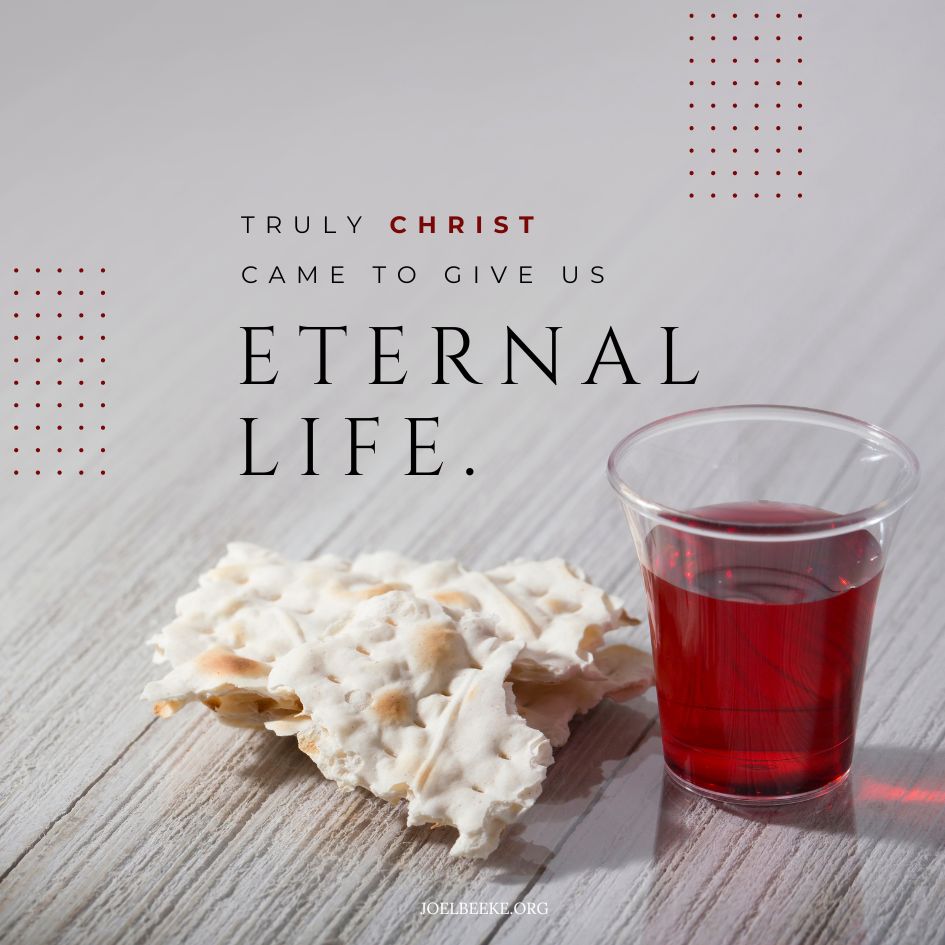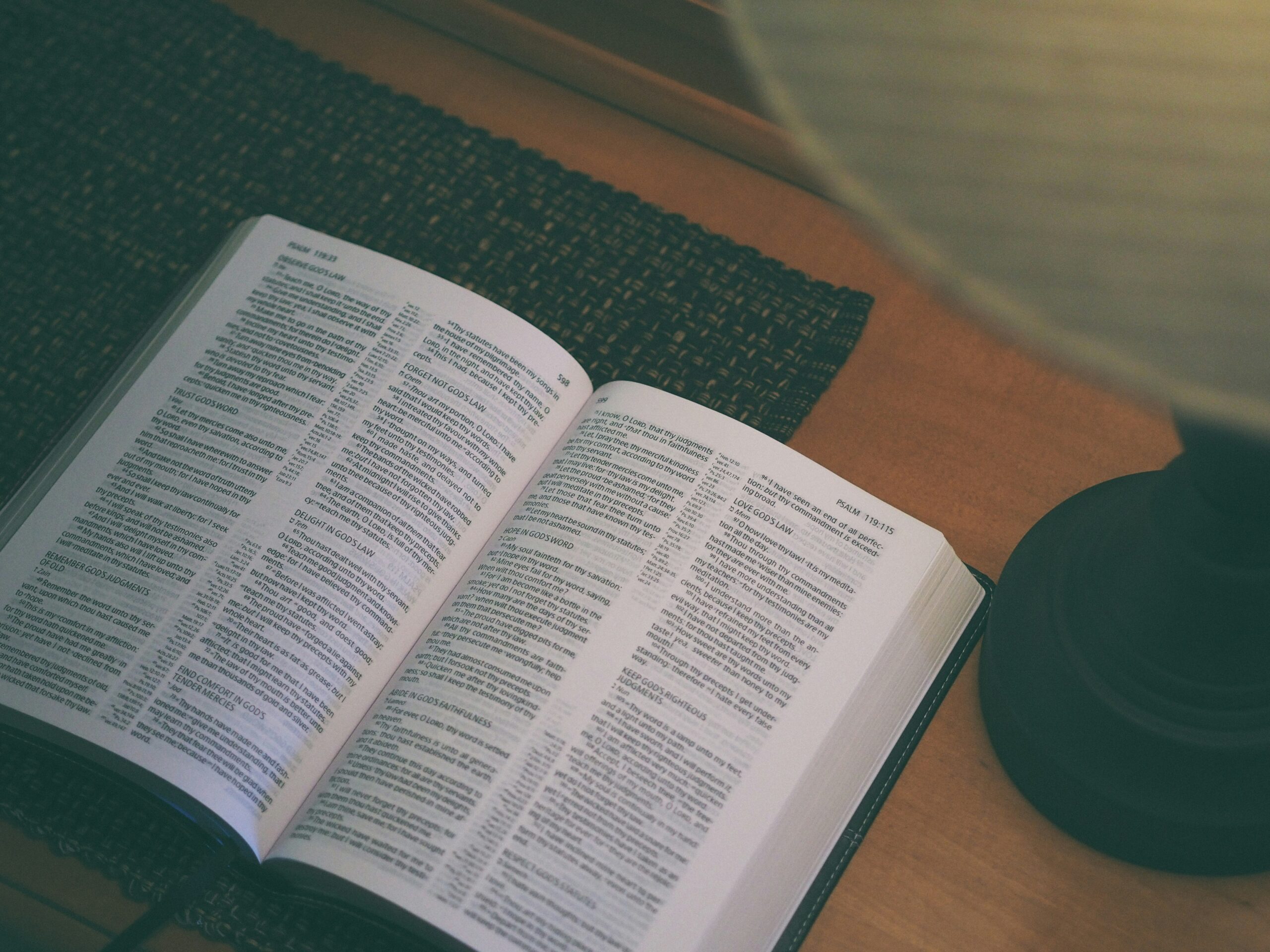
I am the living bread which came down from heaven: if any man eat of this bread, he shall live forever: and the bread that I will give is my flesh, which I will give for the life of the world. — JOHN 6:51
Our earthly bodies, which are corrupted by sin, are destined to grow old, decay, and die. All the money in the world cannot save us from natural corruption; we need a cure from heaven. In His incarnation, Christ provides that cure. He was sent into the world as the remedy for sinful flesh. Because His flesh was untainted by corruption, He could give His body as a ransom for the life we forfeited by sin. His life must be exchanged for ours so that we may be spared.
In startling fashion, Jesus teaches His disciples that, like physical bread and wine, His body and blood will bless those who feed on Him. He says in John 6:53–54, “Except ye eat the flesh of the Son of man, and drink his blood, ye have no life in you. Whoso eateth my flesh, and drinketh my blood, hath eternal life; and I will raise him up at the last day.” He presents Himself as the food and drink of eternal life. Puritan Bible commentator Matthew Henry observed, “Everything else we eat is a shadow compared to Christ.” Believers must not just think or talk about Jesus; they must feast on Him. An old Latin hymn puts it this way:
We taste Thee, O Thou living bread,
And long to feast upon Thee still;
We drink of Thee, the fountainhead,
And thirst our souls from Thee to fill.1
How do we feast on Him? We should clarify that Christ was not teaching us to be cannibals. The sixth commandment imparts sanctity to human life that must not be violated. Thus, Christ’s language in John 6 refers not to a physical act but to the spiritual act of feeding on Him in our hearts by faith.
First, we develop an appetite for Christ by committing our hearts to Him, knowing that only He can satisfy our deepest longings. We learn to say of Christ, “Thou art my God; early will I seek thee: my soul thirsteth for thee, my flesh longeth for thee in a dry and thirsty land, where no water is…. My soul shall be satisfied as with marrow and fatness; and my mouth shall praise thee with joyful lips” (Ps. 63:1, 5).
Second, we meditate upon Him. We must recollect and reflect on all that we learn of Christ. We reflect on His names, His states, His works, and His words. Then we apply every “bite” of His person and work to our lives.
Third, we delight in Him. God gave us food not only to strengthen us physically but also to cheer us. Christ is not just the food we need; He is also the food that we desire and our portion forever (Ps. 73:25–26). We cry out with the psalmist, “O taste and see that the LORD is good: blessed is the man that trusteth in him” (Ps. 34:8).
Finally, we feed upon Him regularly. Our bodies must be fed daily to maintain our health and strength. When God rained down manna in the wilderness, His people had to gather it daily (Ex. 16:4–5). Some of us have little spiritual vitality because we fail to feed on Christ day by day. Over time, we become spiritually anorexic. We should realize that every part of Scripture speaks of Christ (John 5:39). Thus, every time we read a passage of God’s Word, we should ask how it bears witness to Him. We make Christ our favorite daily food.
When we sit down for a meal, we should eat what is good for our bodies. With God’s blessing, our daily bread will sustain us. Something similar happens when we feed on Christ by faith. In article 35, the Belgic Confession explains the analogy between earthly and heavenly bread: “For the support of the spiritual and heavenly life which believers have, He hath sent a living bread which descended from heaven, namely, Jesus Christ, who nourishes and strengthens the spiritual life of believers when they eat Him, that is to say, when they apply and receive Him by faith in the Spirit.”
This teaching has often been misunderstood, and Christians in the early church were persecuted because of the erroneous belief that they were cannibals and celebrated secret feasts at which they ate human flesh and drank human blood. In a certain sense this was true; while Christians were not eating and drinking physical flesh and blood, they were spiritually eating and drinking, for the Belgic Confession explains that, in the Lord’s Supper, “what is eaten and drunk by us is the proper and natural body and the proper blood of Christ. But the manner of our partaking of the same is not by the mouth, but by the Spirit through faith.”
To benefit from eating the Bread of Life, the Bread must first be broken. Christ’s body was broken on the cross so that we could share in His life. Truly Christ came to give us eternal life.
Excerpt from
Why Christ Came: 31 Meditations on the Incarnation
By Joel R. Beeke and William Boekestein








